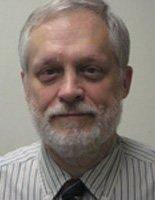My current exploration into bibliographic sources has focused on what happened in the period 1968-1990 in Great Britain. Elliott and Bioss began two huge projects - one to reform the National Health Services (NHS) and the other to reform the social services departments (DSS).
The NHS reorganization was a fiasco. The internal fight was between the managers and the health professionals (led by the MDs). Costs were rising and they had to be contained. In 1974, at the last minute, the managers took over the reorganization to get power. Within two years the rebellion by the doctors to this power-grab was disowned in public by the PM who called for an inquiry into the increase in 'bureaucracy'. Elliott and Bioss took the fall and it was several years before they recovered. Maurice Kogan, formerly of Bioss and still at Brunel, was called in to sort out the mess. By then Thatcher was in as PM with a different market-based agenda. The NHS has undergone several 'reformations' since - with several more likely in the offing. After the destuction by the medical staff of the 1974 reforms it appears the managers have since prevailed under the banner of cost-reductions. (But Baumol's cost disease still lives, so I suspect we have not heard the last from the doctors yet.)
The DSS reorganization by contrast went fairly smoothly. The social workers wished themselves to be 'autonomous professionals', but they were already part of a bureaucracy. Two PhD theses were done on DSS and showed that accountability had been established within the hierarchy. David Billis and colleagues played a big role in stabilizing this situation in the 1980s. Slowly, the blame-throwing became limited even during crises, which still came about randomly. Social workers were accountable for their judgment and less for outcomes beyond their control. Actually, they seem to have begun to defend themselves.
Meanwhile, the UK in the 1980s was convulsed with public finger-pointing in the form of auditors and audit-committees. This was partly driven by cost concerns, but mostly it was Puritanism run amuk. The common assumption was Taylorism in its pure form: 'There is nothing wrong with the machine. If everyone does their part the outcome will be as predicted.' Of course, managers have to be there to redesign a changing system, but they were busy using their authority to enforce accountability. (An obscene act and a dereliction of managerial duty, but accepted by the public.)
Documenting what went wrong and what went right has been informative. I'd like to know more about Kogan's role and his relationships. Also, the simultaneous movement in the US toward HMOs as a method of medical cost control was very interesting. Neither public seems to be aware that the doctor-patient relationship is altered when a manager enters the equation and the doctor becomes an employee. Maybe it is not as important to them as is cost.
The recent US changes in the medical services law need to be addressed from this perspective. The US has the most expensive medical care in the world - but probably not the best.
Ken Craddock





